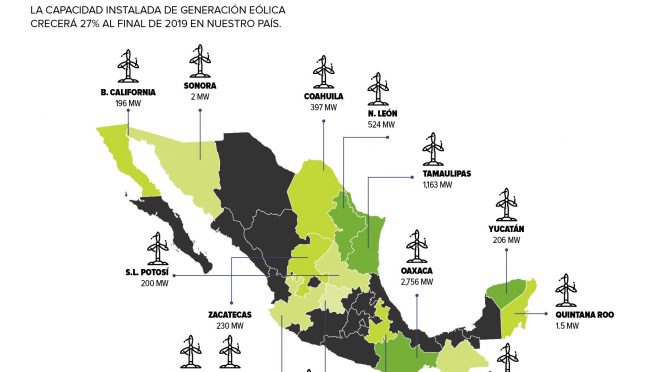Ramón Fiestas, president of the Latin American committee of the Global Wind Energy Council, points out that the changes in energy matters go against the decarbonization of the rest of the world.
The changes that Mexico has made in the electricity market are already being echoed in the international arena. Not only among investors, but also among organizations leading the transition to a low-carbon economy.
Ramón Fiestas, president of the Latin American committee of the Global Wind Energy Council (GWEC) describes the new regulations for the sector as an “absolute contradiction” towards the organic course that the rest of the world’s economies are following. “The perception that Mexico is having in all international forums is one of consternation. Nobody understands, there is perplexity. But what is Mexico doing? There is no rational explanation for what Mexico is doing, ”he says in a video call.
“It is an absolute contradiction that most of the countries on the planet are seeing an opportunity to recover their economies through investments in renewable energy and that Mexico wants to go back to the 1950s.”
And there is a common denominator among most economies: reducing the use of fossil fuels and the commitment to invest in renewable energy as part of the economic recovery after the crisis generated by the coronavirus pandemic.
But, in Mexico, the latest change in the game has been the approval of the reform to the Electricity Industry Law. And it was after this change that the Global Wind Energy Council and the Global Solar Energy Council decided to influence Mexican politics, despite respecting their autonomy. A day after the approval of the reform in the Chamber of Deputies, the organizations published a statement calling on the Mexican government to return the country to the course of an energy transition.
Mexico was one of the signatory countries of the Paris Agreement, the main international agreement to achieve the decarbonization of economies, and it issued the Energy Transition Law, which sets the standard to reduce the use of fossil fuels. But the course set by the current administration is heading in the opposite direction. And the rest of the countries, says Fiestas, already perceive the setback in the Mexican energy transition.
“This is part of agreements that are and go far beyond the decisions that Mexico can make (individually), because they are global agreements that affect all of humanity and are related to improving the quality of life and sustainability” says the GWEC Latin America president.
The government of President Andrés Manuel López Obrador has decided to give priority to the state Federal Electricity Commission (CFE) and, with it, to the rest of the plants owned by the company. Changes in the main law of the market place renewable generation in one of the last places in line. The federal administration has decided to first use the electricity produced in the hydroelectric plants and the rest of the CFE plants, most of which are based on fossil fuels, to leave the solar and wind plants owned by private companies, almost at end of the queue. .
“What happens in Mexico is not insignificant for the world. The world is making an effort to transition and transform its energy matrix towards decarbonization, and if someone is left behind, they are disengaging from the effort that others are making. And they will end up paying for it, because there are already a series of policies that are orchestrated so that they can walk in unison ”, says the specialist.
The federal administration has defended the autonomy of the country to legitimize each of the changes made to the market that was opened to private and foreign investment with the energy reform. But in the meantime, the rest of the world has begun to outline strategies to move more firmly towards decarbonisation.
The United States rejoined the Paris Agreement a few days ago, after former President Donald Trump decided not to continue with it. And the European Union has launched the Green Deal, a plan to slow climate progress and with a strong emphasis on trade, as they include new taxes on carbon emissions and on products whose production has incurred environmental damage. The latter refers to Fiestas when he assures that Mexico will have to pay for the new policies put in place.


